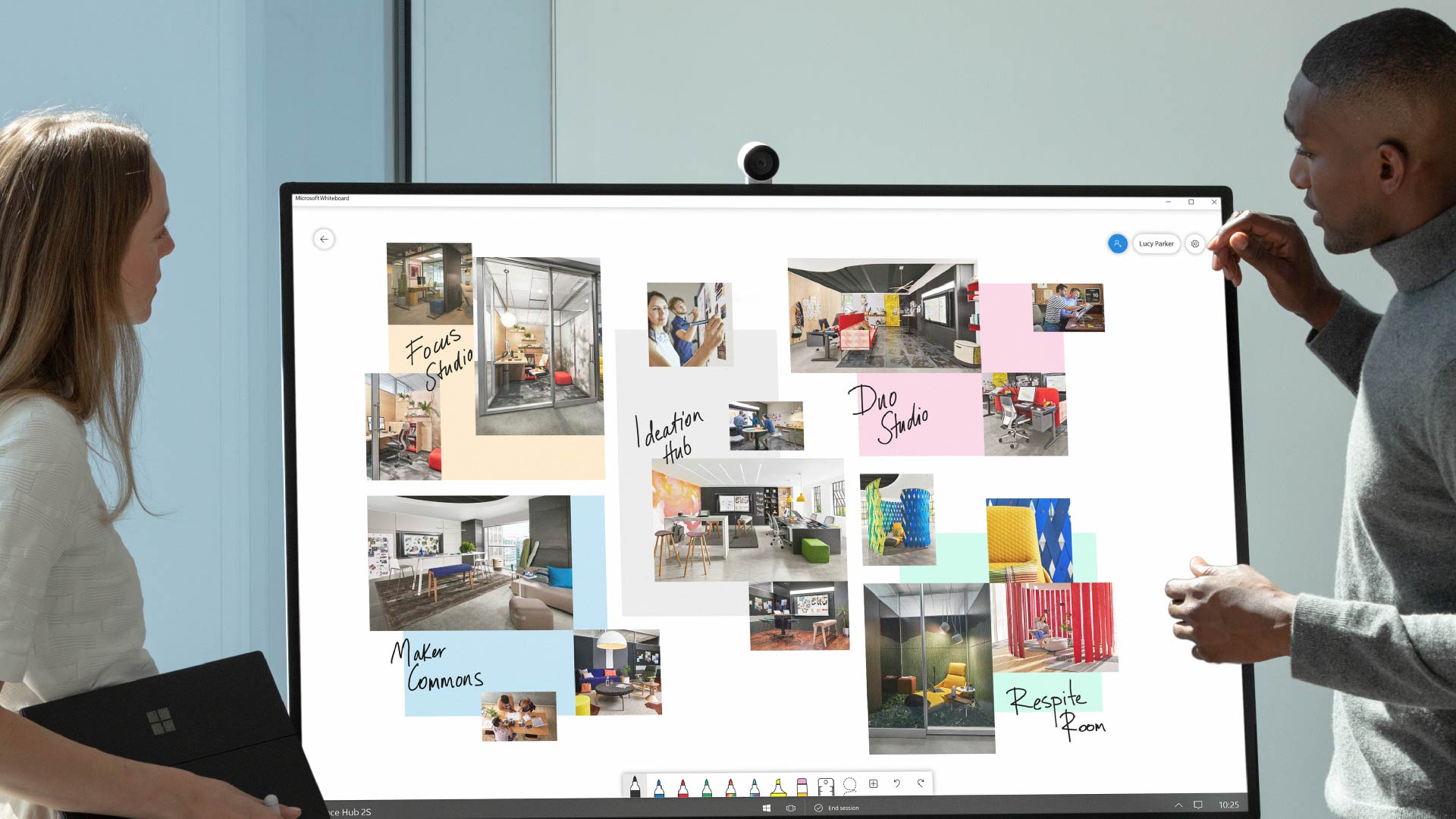
Microsoft’s not-inconsiderable integration know-how has erased much of the physical distance felt by remote workers, but there was still room for improvement on the hardware side. If you’ve ever joined an online meeting to see three people crowded around a laptop camera, and then heard disembodied voices from somewhere off-screen, your experience is fairly typical. Or maybe, with slightly better equipment, you’ve been able to see most of the group, but those around the edges are weirdly distorted because of the limitations of the wide-angle lens.

Most of us have shrugged our shoulders at these problems and tried not to smirk when our misshapen colleagues appear at the edge of the screen. Still, while humour has definitely been an essential workplace skill through the pandemic, the limitations have a more serious impact, in the form of less productive meetings that leave many workers feeling left out of the discussion. What is happening off-camera is often important.
Some AI-savvy developers at Microsoft decided not to just shrug and put up with it, and instead set about creating a smarter camera option. Their brief was to help organisations to get the most from their investment in Teams Calling and collaboration. The result was the Surface Hub 2 Smart Camera, and it is different to any camera we’ve seen.
The first thing you’ll notice is that Microsoft’s new smart camera engages AI to automatically adjust video feed, reframing the view when people enter or leave the room, or move around. For those of us who tend to use the entire space when presenting to a group, this is welcome progress: no more forcing ourselves to stand on the spot, when a more dynamic approach is more engaging. For those working from home or satellite offices meanwhile, it is a truer feel of being a part of the team instead of missing the full picture.
The oddly distorted views of colleagues are also in the past. Boasting a 4K, ultra-wide-angle lens and greater than 136-degree horizontal view – gone are the usual warping and depth of field issues, thanks to an algorithm Microsoft built that automatically compensates for distortion. It adjusts lighting, and corrects the wide angle, so that people and objects stay true to life for the viewer.
Installation is mercifully easy, since the camera attaches via a USB-C mount and is attached with a simple magnetic click, sitting on a perfectly tilted angle and allowing natural eye contact by accounting for the camera position. No need for the IT department to roll up their sleeves (although they will definitely enjoy getting a closer look at the functions during their team meetings). The camera body is aluminium, with a privacy cover that attaches magnetically when it is not in use.
When you’re joining a meeting alone from a desk in your home office, the built-in camera of a good, business-level device will do a perfectly good job. On the other hand, when meetings involving bigger, office-based groups want to welcome such remote workers, the smart, higher quality Surface Hub 2 Smart Camera will make them feel less like bystanders with an obscured view, and more like part of the team.
